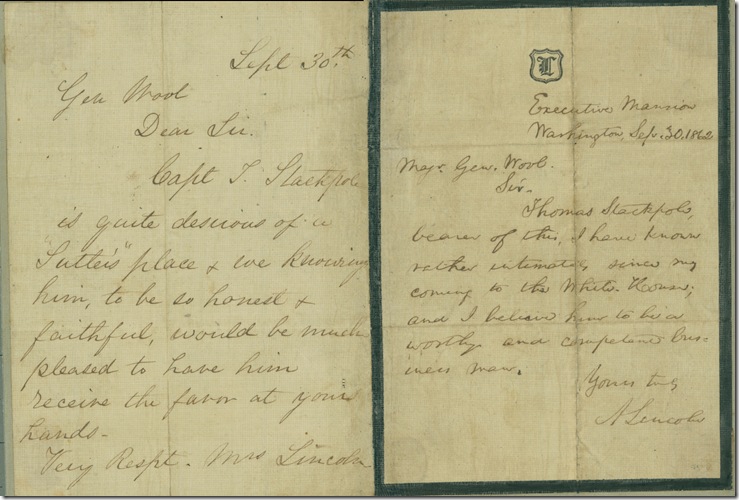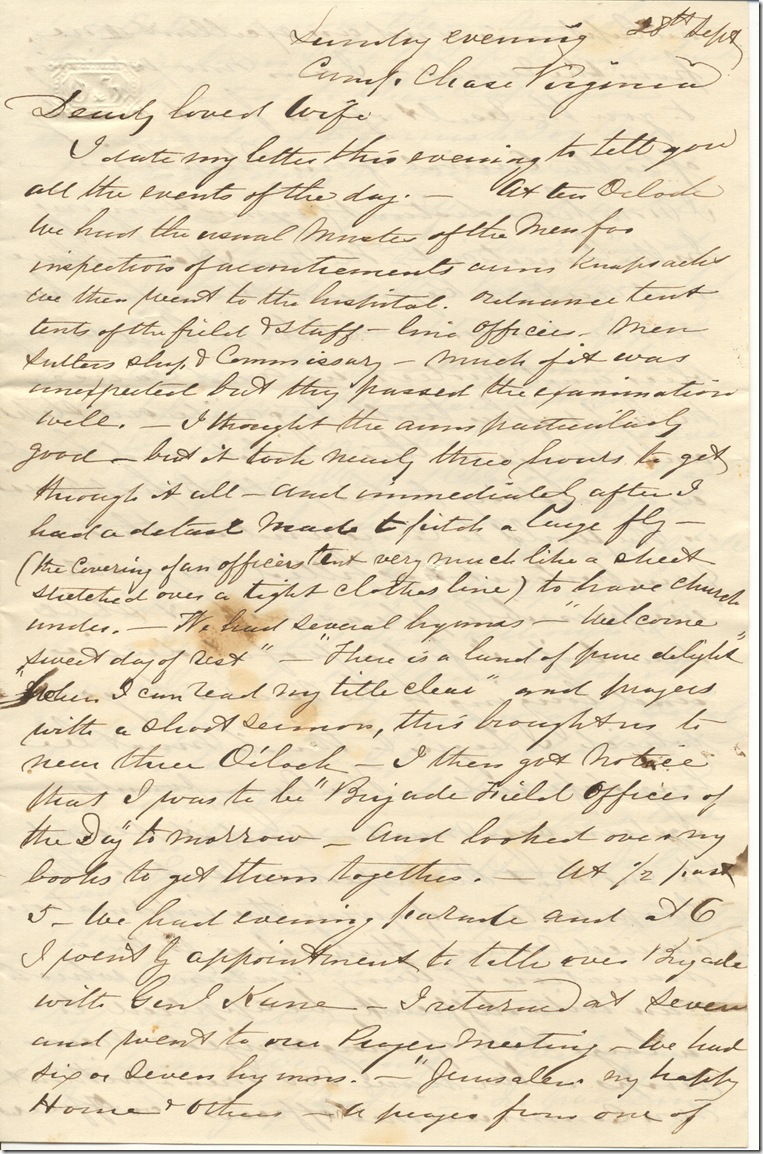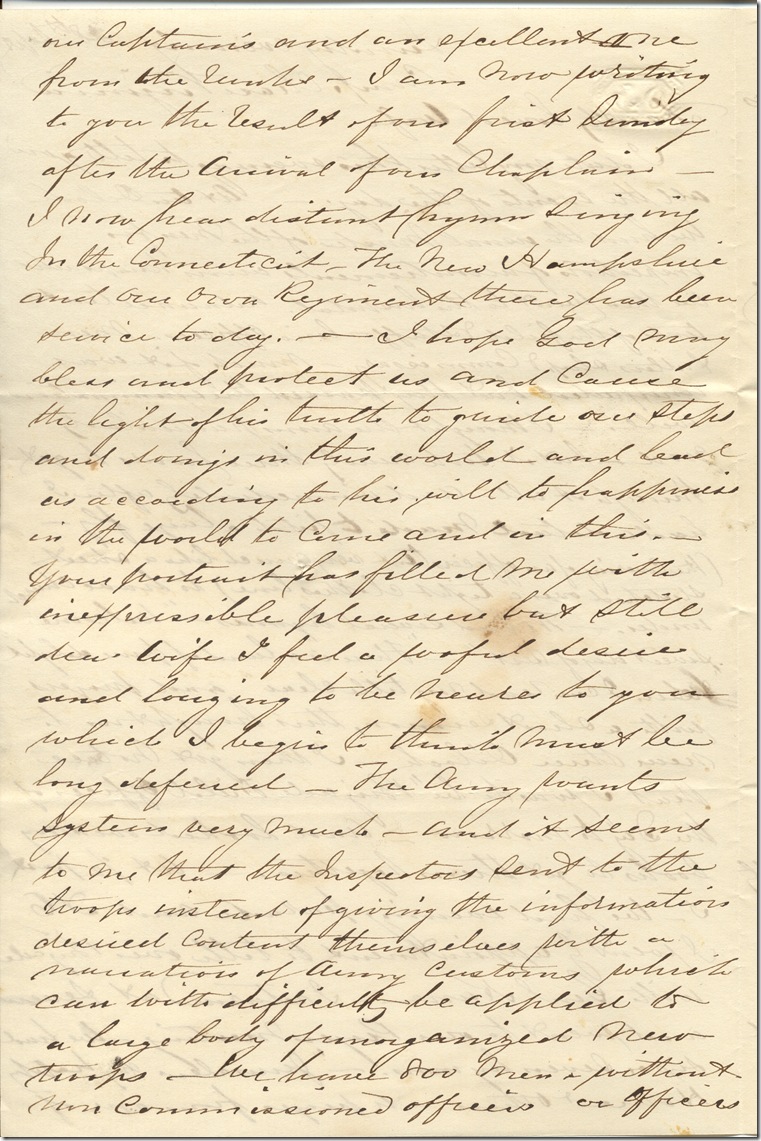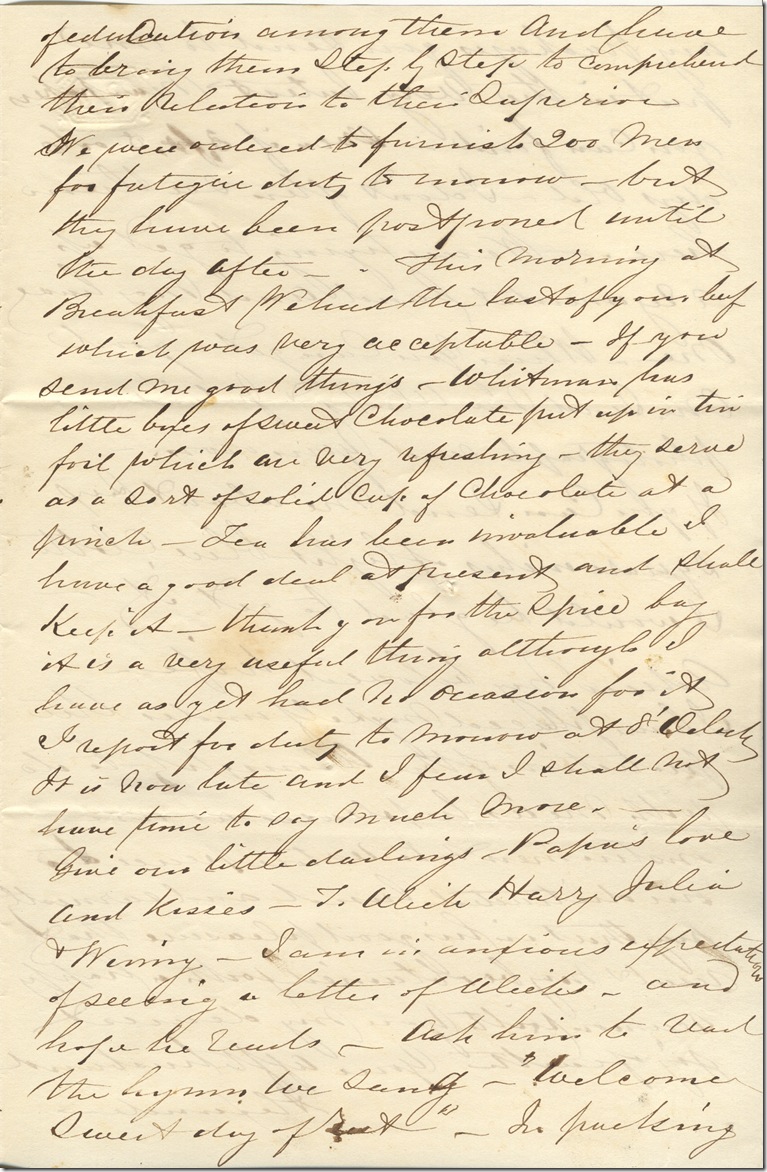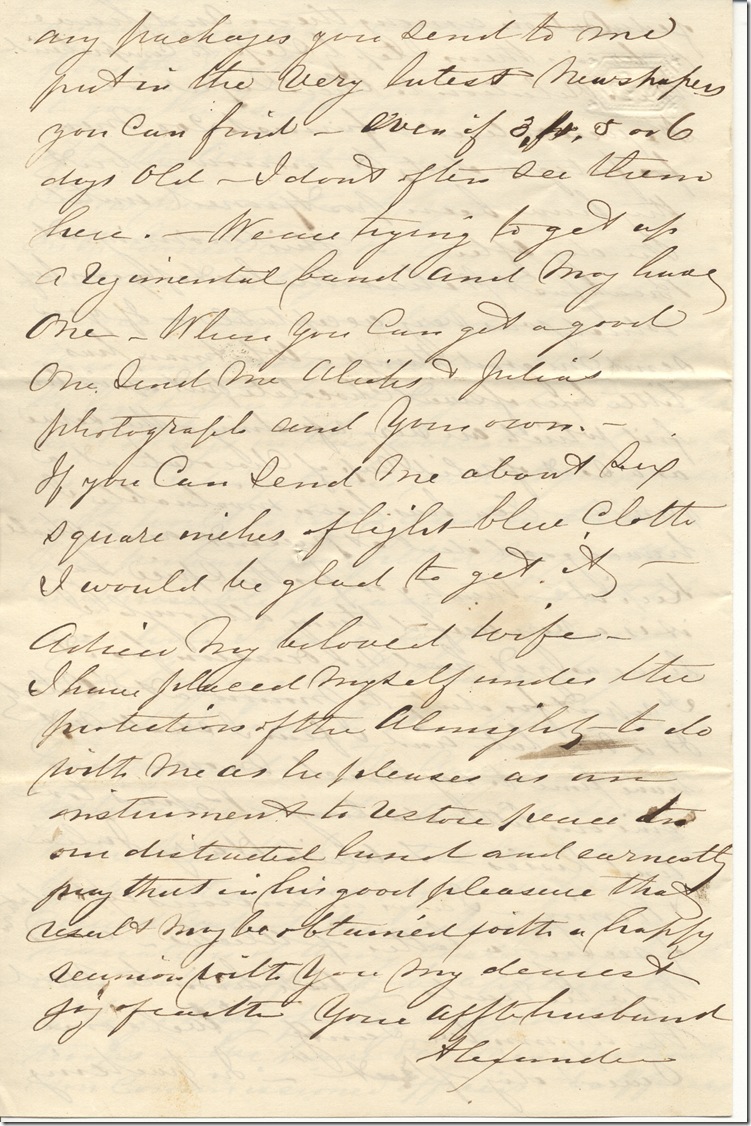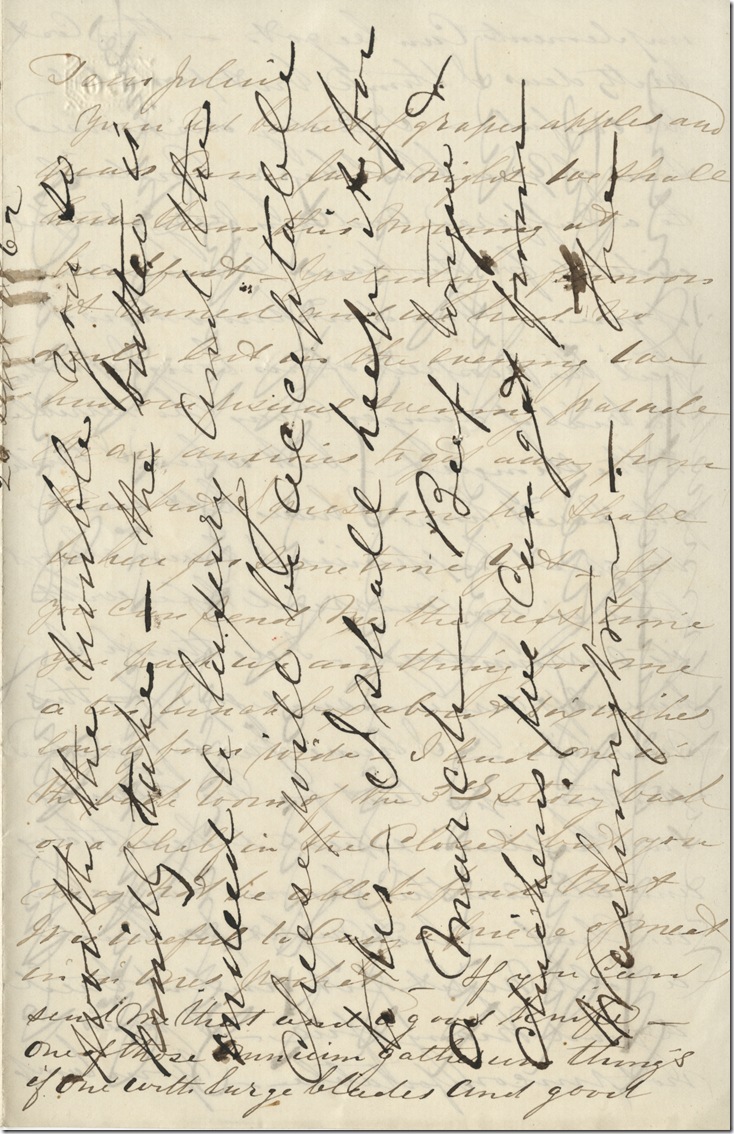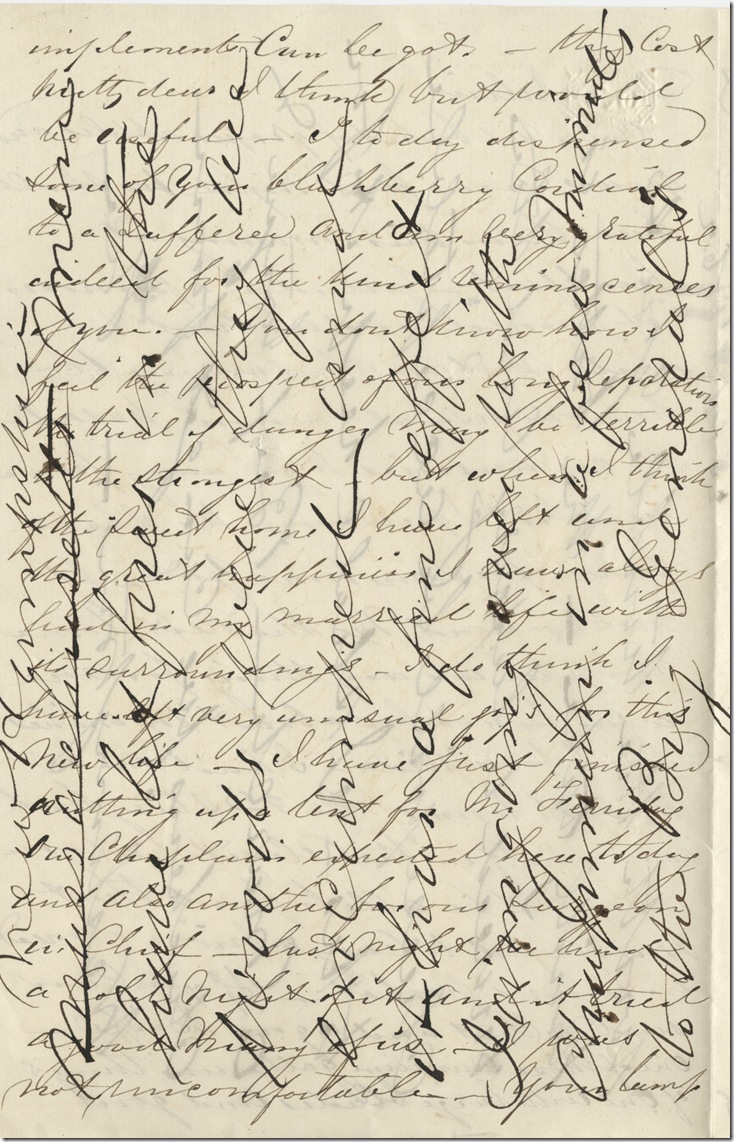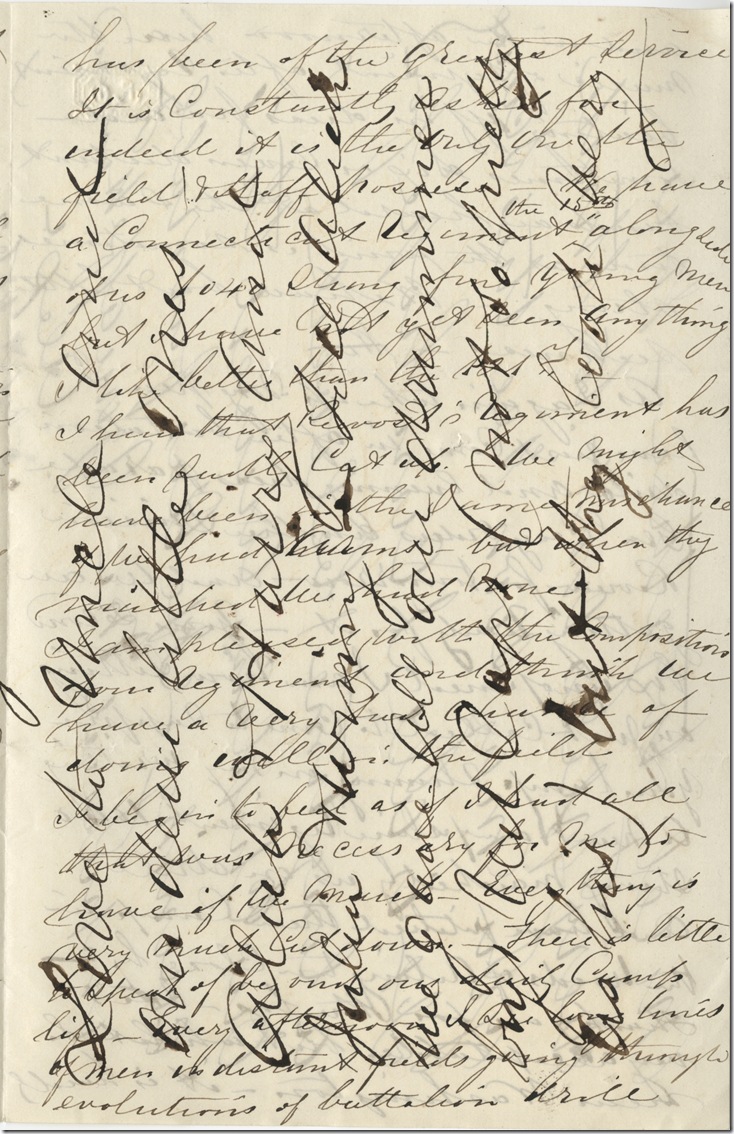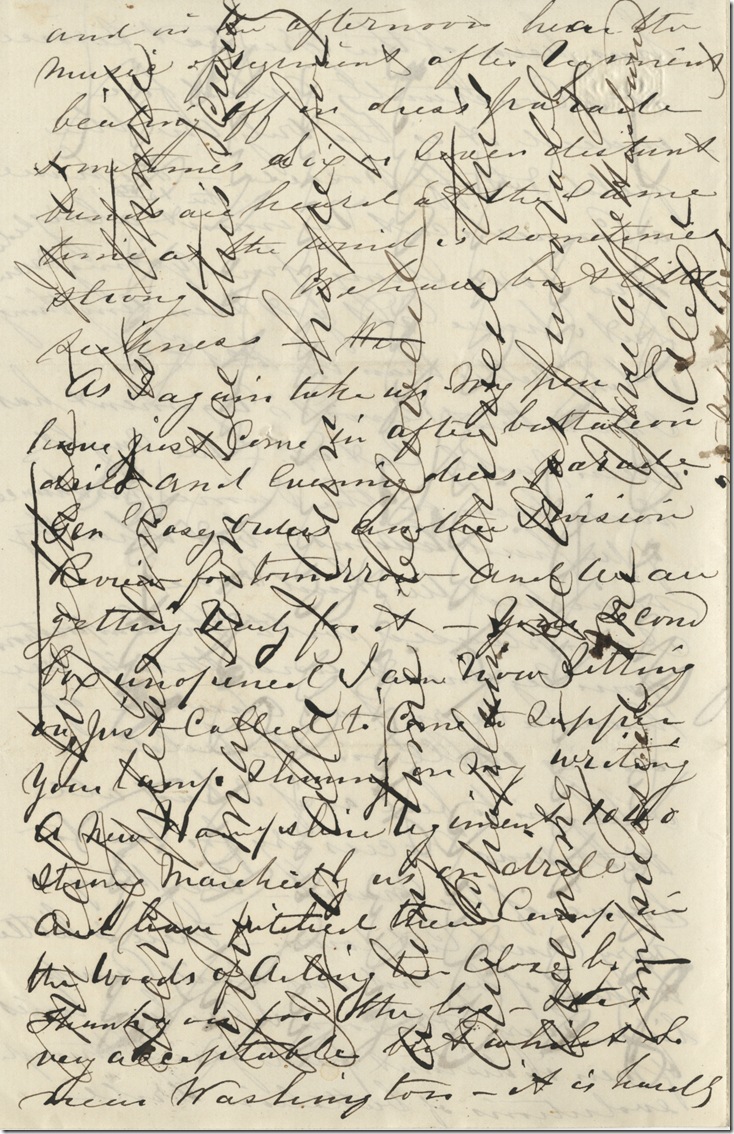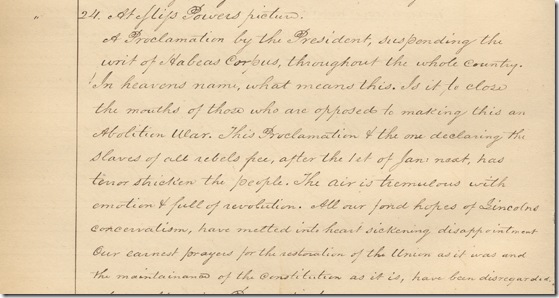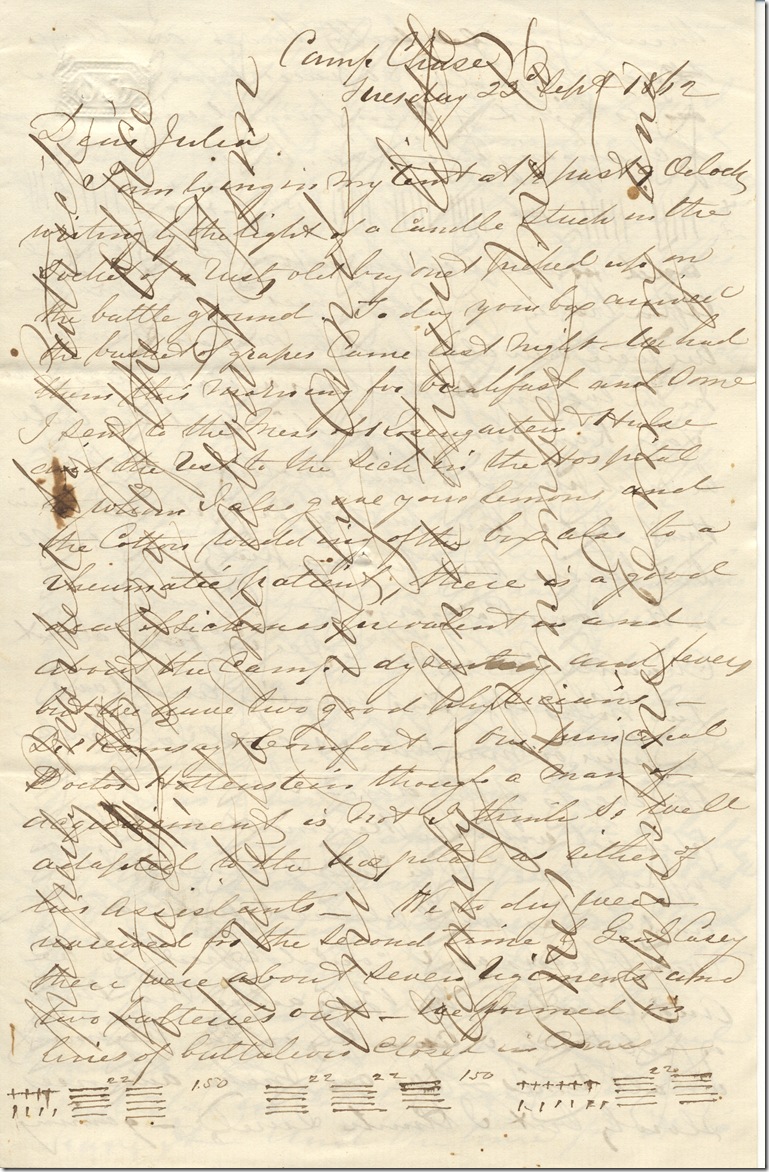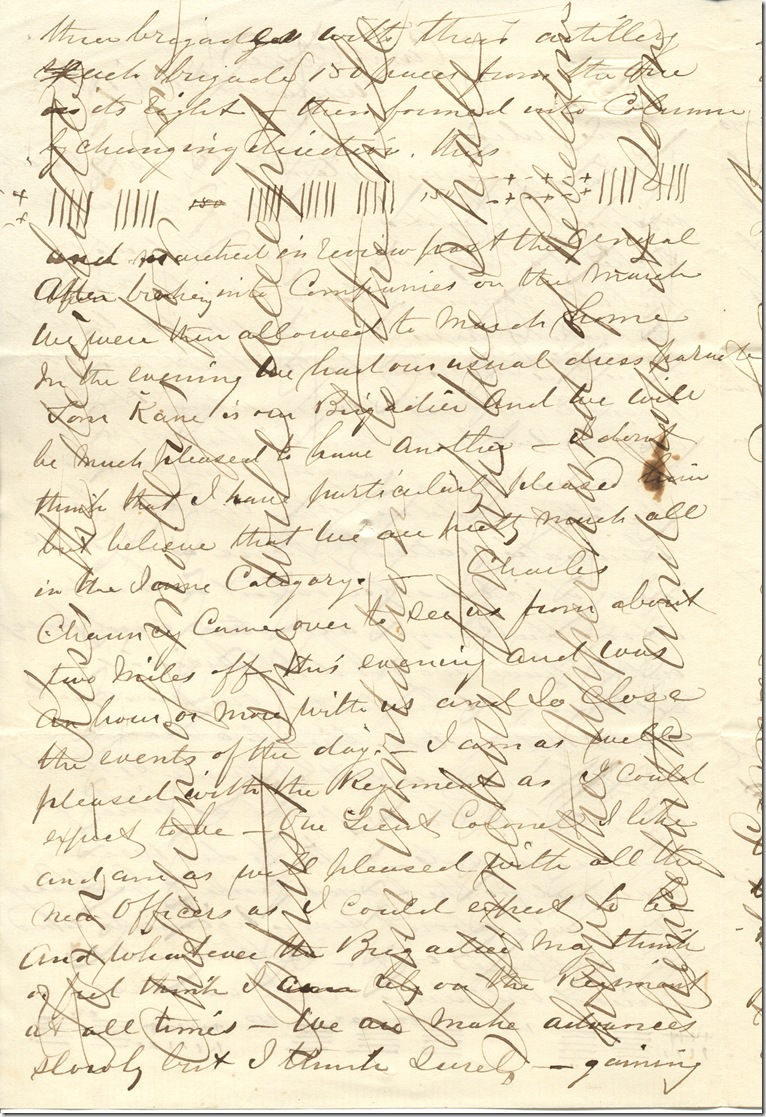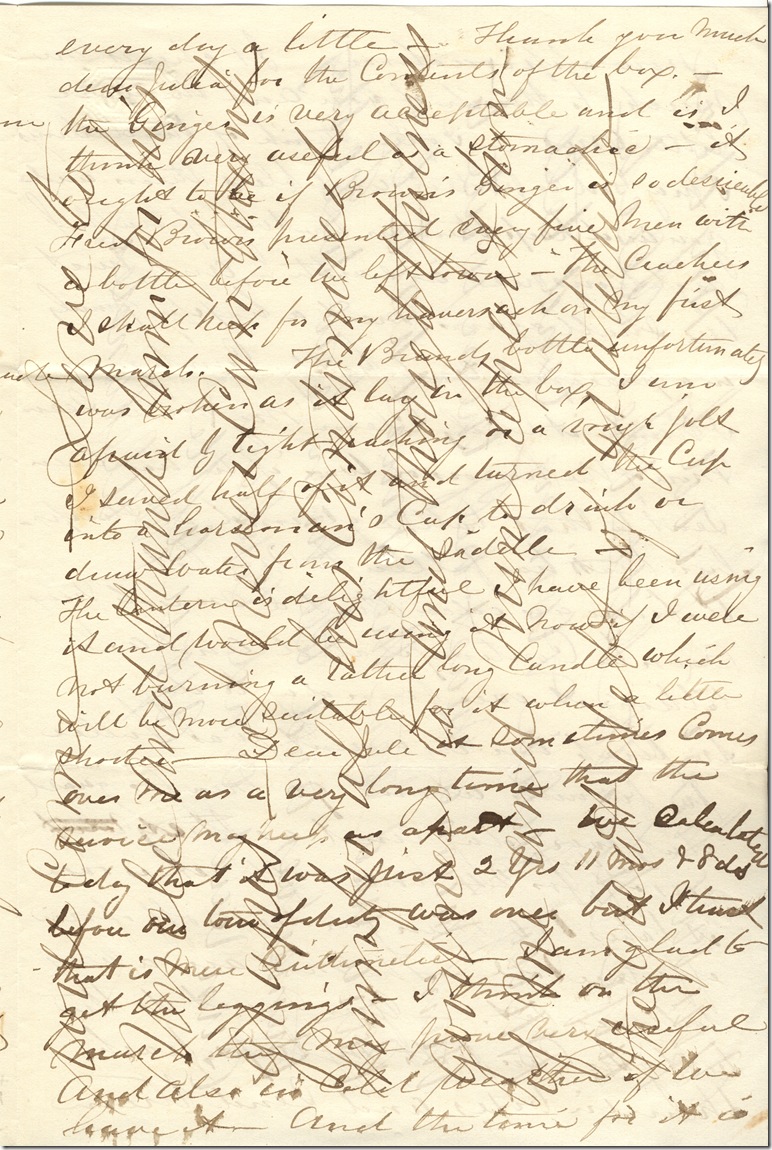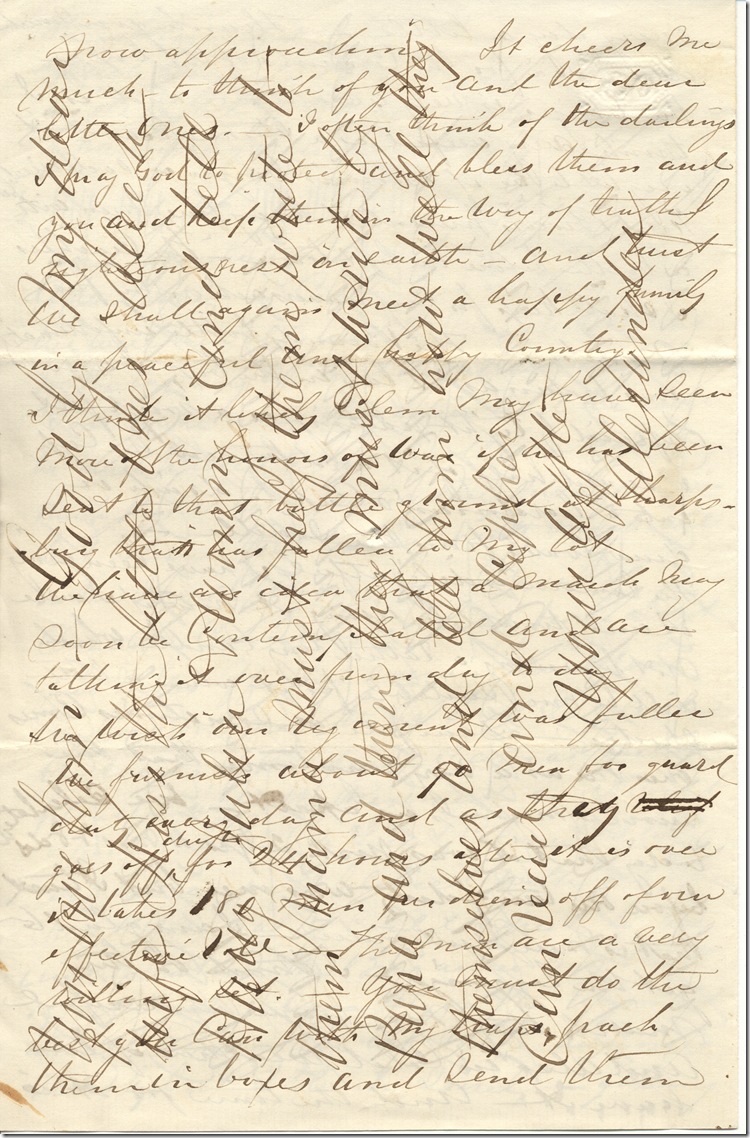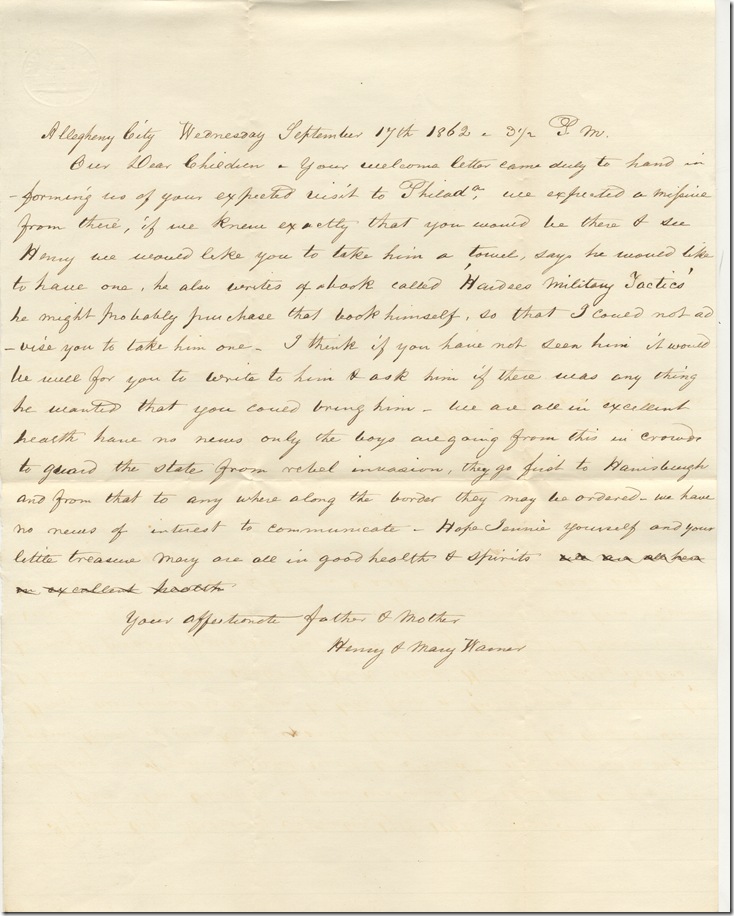Alexander Biddle was a member of the prominent Philadelphia Biddle family and was married to Julia Williams Rush, the granddaughter of Dr. Benjamin Rush. A businessman and member of the First Troop Philadelphia City Calvary before the war, Biddle entered Civil War service with the 121st Pennsylvania Volunteer Infantry on September 1, 1862. Starting out as a major, he would be involved at Fredericksburg and Gettysburg, among other engagements, and would leave the service as a lieutenant colonel. (He was commissioned, but never mustered, as colonel)
[Note: this statement has been updated to reflect that Biddle was not mustered as a colonel. It also originally mistakenly stated Biddle was also at Chancellorsville, but he was on leave]
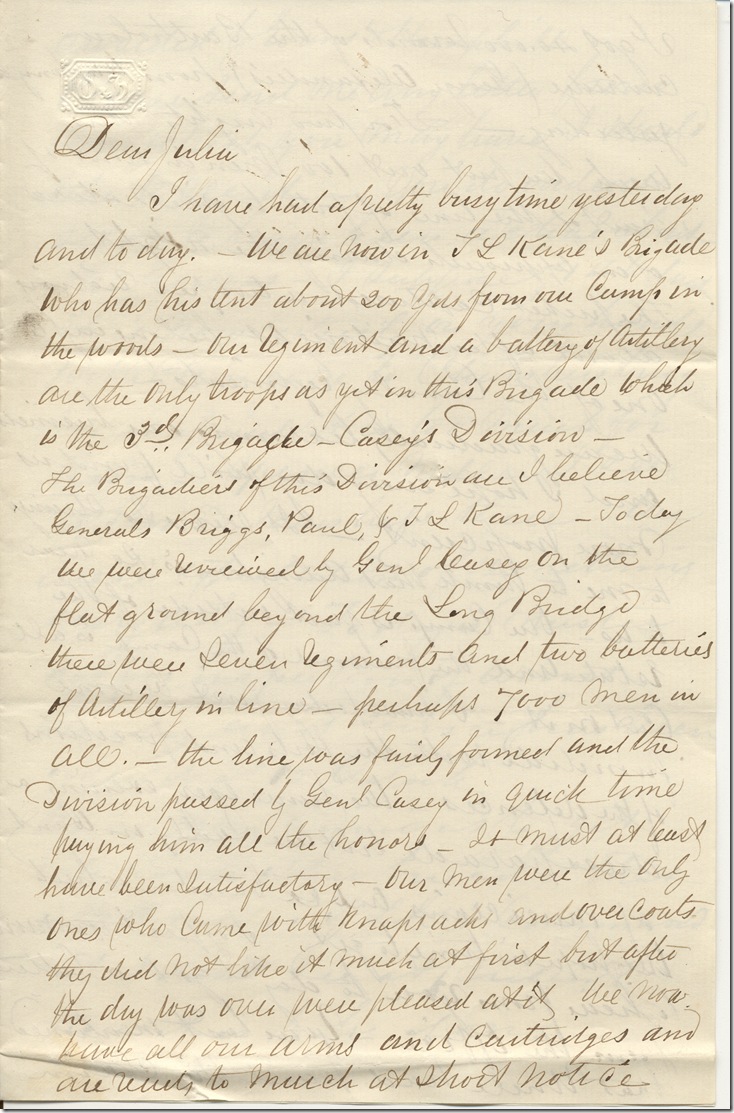
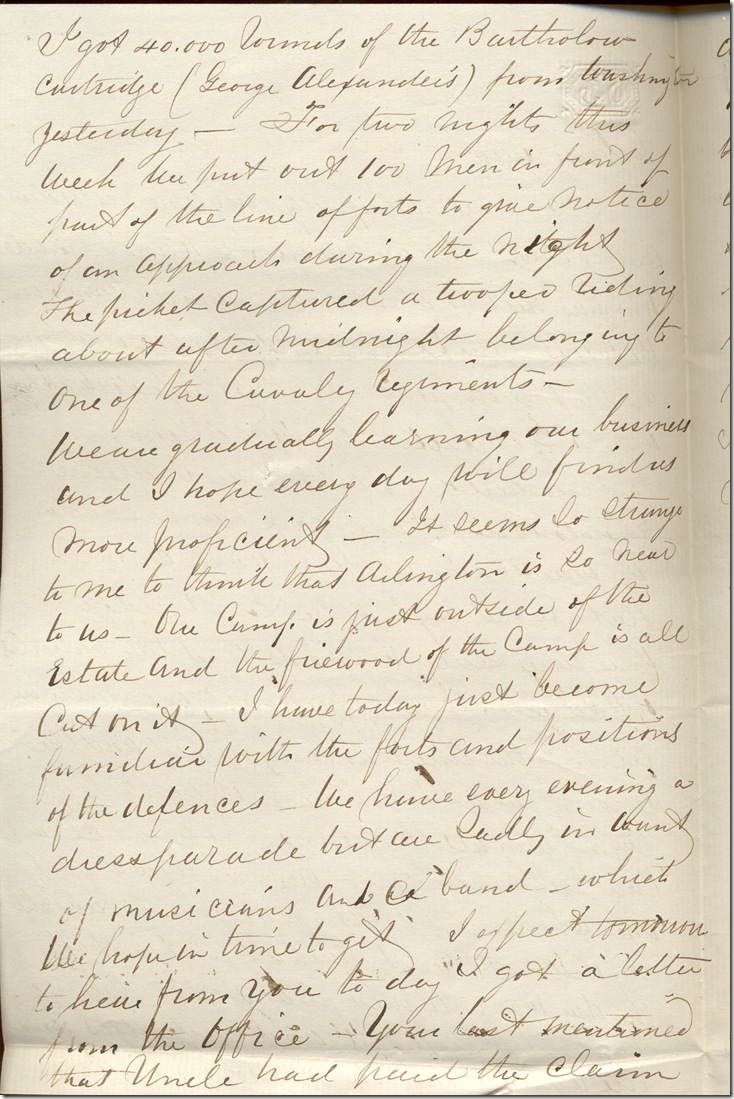
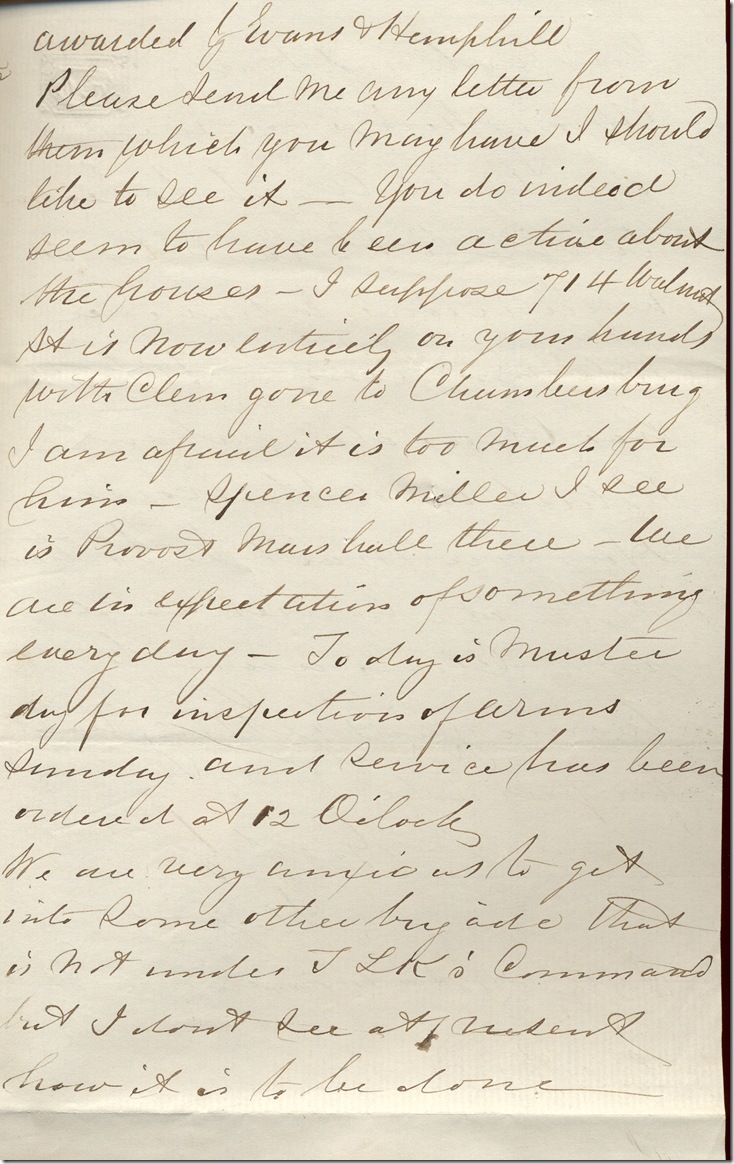
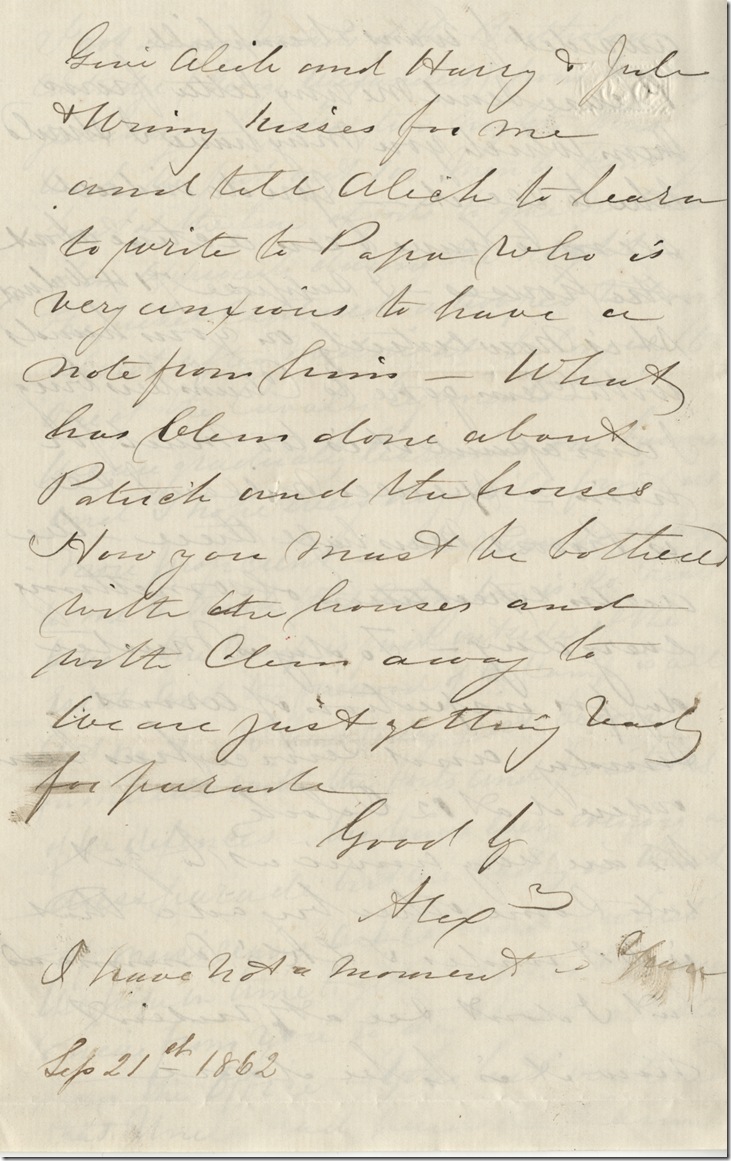
Transcript:
Dear Julia,
I have had a pretty busy time yesterday and today. We are now in T L Kane’s Brigade who has his tent about 200 yrds from our Camp in the woods. Our regiment and a battery of artillery are the only troops as yet in this Brigade which is the 3rd Brigade, Casey’s Division. The Brigadiers of this Division are I believe Generals Briggs, Paul & T L Kane. Today we were reviewed by Genl Casey on the flat ground beyond the Long Bridge there were Seven Regiments and two batteries of Artillery in line – perhaps 7000 men in all. The line was fairly formed and the Division passed by Genl Casey in quick time paying him all the honors. It must at least have been satisfactory – our men were the only ones who came with knapsacks and overcoats. They did not like it much at first but after the day was over were pleased at it. We now have all out arms and cartridges and are ready to march at short notice. I got 40,000 pounds of the Bartholow Cartridge (George Alexander’s) from Washington yesterday – for two nights this week he put out 100 men in front of part of the line of forts to give notice of an approach during the night
The picket captured a trooper hiding about after midnight belonging to one of the Cavalry regiments.
We are gradually learning our business and I hope every day will find us more proficient. It seems so strange to me to think that Arlington is so near to us. One camp is just outside of the estate and the firewood of the camp is all cut on it – I have today just become familiar with the forts and positions of the defences. We have every evening a dress parade but we are sadly in want of musicians and a band which we hope in time to get. I expect tomorrow to hear from you to day I got a letter from the Office, Your last mentioned that Uncle had paid the claim awarded by Evans & Hemphill
Please send me any letter from them which you may have I should like to see it. You so indeed seem to have been active about the houses – I suppose 714 Walnut St is now entirely on your hands Clem gone to Chambersburg I am afraid it is too much for him. Spencer Miller I see is Provost Marshall there. We are in expectations of something every day. Today is Muster day for inspections of arms Sunday and Service has been ordered at 12 o’clock
We are very anxious to get into some other brigade that is not under T L K’s command but I don’t see at present how it is to be done
Give Aleck and Harry & Julia & Winny kisses for me and tell Aleck to learn to write to Papa who is very anxious to have a note from him. What has Clem done about Patrick and the houses How you must be bothered with the houses and with Clem away to
We are just getting ready for parade
Good by
Alex
I have not a moment to spare
Sep 21st 1862
Citation: Alexander Biddle (1819-1899), autograph letter signed to Julia Williams Rush Biddle. 21 September 1862. Rush IV:30:23
